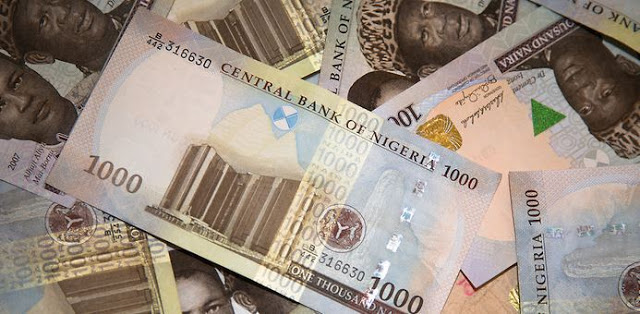A market-driven exchange rate regime is in the works, going by the Federal Government’s economic plan released yesterday.
There has been pressure that the naira should be allowed to float, its worth dictated by market forces.
This, argue some experts, will attract investors. But the government insists that no country surrenders totally its currency to market forces, adding that it will intervene when necessary. It may have changed its mind.
The government will also review and possibly remove the ban on foreign exchange for 41 goods and services, according to the Economic Recovery and Growth Plan (ERGP) 2017 to 2020, which was released by the Budget Ministry.
Nigeria also sees 2017 inflation at 15.74 per cent, and at 12.42 per cent next year, the plan said. Inflation in January hit 18.7 per cent, its highest level in more than 11 years.
The development of the plan went through a rigorous process, including wide consultations, and robust engagements with stakeholders from a range of relevant fields. They include economic experts from the public and private sectors, the academia, the Organised Private Sector, civil society groups, Organised Labour, sub-regional governments, international development partners (including the World Bank, International Monetary Fund and African Development Bank), the National Economic Council (NEC) and the National Assembly. The Plan has been approved by the Federal Executive Council.
“The core vision of the plan is one of sustained inclusive growth. There is an urgent need as a nation to drive structural economic transformation with an emphasis on improving both public and private sector efficiency. The aim is to increase national productivity and achieve sustainable diversification of production, to significantly grow the economy and achieve maximum welfare for the citizens, beginning with food and energy security.
The plan envisages that by 2020, Nigeria would have made significant progress towards achieving structural economic change with a more diversified and inclusive economy. Overall, the plan is expected to deliver on five key broad outcomes, namely, a stable macroeconomic environment, agricultural transformation and food security, sufficiency in energy (power and petroleum products), improved transportation infrastructure and industrialisation focusing on small and medium scale enterprises.
Realising that the economy would remain on a path of decline if nothing was immediately done to change the trajectory, the Muhammadu Buhari administration, when it assumed office, embarked on strategic moves to halt the trend and redirect the course of the country’s economy and growth process.
The process started with the development of the Strategic Implementation Plan (SIP) for the 2016 Budget of Change as a short-term intervention. The ERGP, a Medium Term Plan for 2017 to 2020, builds on the SIP and has been developed for the purpose of restoring economic growth while leveraging the ingenuity and resilience of the Nigerian people.
The plan seeks to eliminate the bottlenecks that impede innovations and market based solutions, recognises the need to leverage Science, Technology and Innovation (STI) to build a knowledge-based economy, and is consistent with the aspirations of the United Nations Sustainable Development Goals (SDGs).
The ERGP differs in several ways from previous strategies and plans as it is anchored on focused implementation, which is at the core of the delivery strategy over the next four years; outlines bold initiatives, such as ramping up oil production to 2.5mbpd by 2020, privatising selected public enterprises/assets, and revamping local refineries to reduce petroleum product imports by 60 per cent by 2018 and builds on existing sectoral plans such as the National Industrial Revolution Plan and the Nigeria Integrated Infrastructure Master-plan among others.
The ceremonial presentation of the Plan will take place when President Buhari returns from vacation.
Also yesterday, the CBN said it had injected fresh $100 million into the interbank foreign exchange market, bringing the total cash intervention into the market to ease difficulties in accessing foreign exchange.
CBN’s Acting Director, Corporate Communications, Isaac Okorafor, said the ongoing funding of commercial banks was expected to meet the Personal travelling allowance (PTA), Business Travel Allowance (BTA), medicals and tuition fees for forex users.
The new funding brings the amount so far pumped into the interbank forex market within the last two weeks to $1.14 million for both forwards and invisibles.
Commending the development, a market analyst observed that it would further create problems for currency speculators who are yet to recover from the sudden appreciation of the naira.
Former economic adviser to the President and Minister, National Planning Commission, Prof. Ode Ojowu, said: ”It appears this time around, the CBN has decided to become smarter than the market manipulators, by putting on its cap of authority to look beneath the market forces.”
The CBN had in February 2017 changed its forex rule supply to guarantee supply to both small and the big end-users. The policy has restored stability and bolstered market confidence which has ultimately boosted the value of the Naira.
Analysts have also commended the efforts of the CBN in ensuring the continuous appreciation of the naira. This they attributed to good policy and effective communication strategy, which has witnessed increased dollar supply to the market.
This page has been viewed 325 times


























